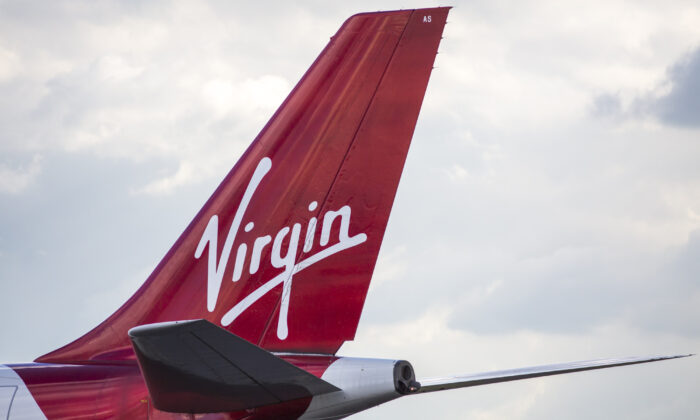UK Airline CEO calls for 100-fold increase in ‘green’ fuel to meet net zero goal
An energy analyst has issued a caution that insisting on having 10 percent of the aviation industry’s fuel derived from sources like cooking oil by 2030 ‘will not result in positive outcomes.’
The CEO of Virgin Atlantic has stated that the sector requires a minimum of 100 times more locally produced “green” jet fuel to comply with the government’s net zero directive.
In April, the government introduced regulations stipulating that 10 percent of all jet fuel must originate from “sustainable aviation fuels” (SAFs) produced from household waste, industrial gases, and used cooking oil within six years.
This mandate, pending parliamentary approval and set to be implemented in January 2025, will be one of the first of its kind worldwide to be enshrined in law.
‘100 Times’
In an effort to operate on 100 percent SAF, Mr. Weiss expressed his desire for the UK government to encourage domestic production of “sustainable fuel.”
He mentioned that this approach “will attract investments to propel domestic fuel production, resulting in the creation of 10,000 jobs while ensuring that we do not need to import fuel from elsewhere,” he added.
“Therefore, the mandate only creates a necessity for airlines to procure this fuel, and we have pledge to do so,” he remarked.
“However, in order to escalate to 10 percent, just to 10 percent, the required output is approximately 100 times what is currently accessible,” he elaborated.
A Virgin Atlantic representative confirmed to The Epoch Times that they estimated ticket prices would need to increase by 6 percent due to these regulations.
SAFs
The UK is dedicated to enhancing the production of SAFs and achieving “net zero” domestic flights. Without further airport expansions, passenger demand is predicted to rise by 65 percent by 2025.
Researchers found that energy crops like rapeseed, miscanthus, and poplar wood would necessitate over 50 percent of the UK’s arable land to replace aviation fuels.
The report highlighted that producing adequate green hydrogen fuel would require 2.4 to 3.4 times the UK’s 2020 renewable electricity generation, mainly wind and solar.
It was noted that alternative aviation fuels are likely to be more expensive, while traditional kerosene jet fuel could become costlier as decarbonization in other sectors accelerates.
The authors also mentioned that the UK heavily relies on importing feedstocks for biofuel, with 423 million liters of used cooking oil imported from China alone in 2021.
‘This Will Not End Well’
Andy Mayer, an energy analyst at the free market think tank Institute of Economic Affairs, expressed to The Epoch Times via email that “neither airlines nor the government have any clear idea of when more effective alternatives to jet fuel will be readily available on a large enough scale to cater to the industry.”
“What is certain is that contamination of jet fuel infrastructure with substandard products can lead to airport shutdowns, fleet conversion takes decades not years, and the readiness of alternatives is uncertain,” he stated.
Mr. Mayer indicated that biofuels “impose opportunity costs on land use that restrict their feasibility as a widespread solution and could inflate food prices. Refining waste oils is sustainable but limited in scope.”
“Developing power to liquid alternatives from surplus renewables is a far-fetched idea for a hydrogen economy in the 2040s and beyond,” he added.
“The government’s decision to assure investors of the market’s stability is misguided, as it should focus on ensuring a functional market. This approach is bound to lead to unfavorable outcomes,” he concluded.
The Epoch Times reached out to the Department for Energy Security and Net Zero for their comments.





